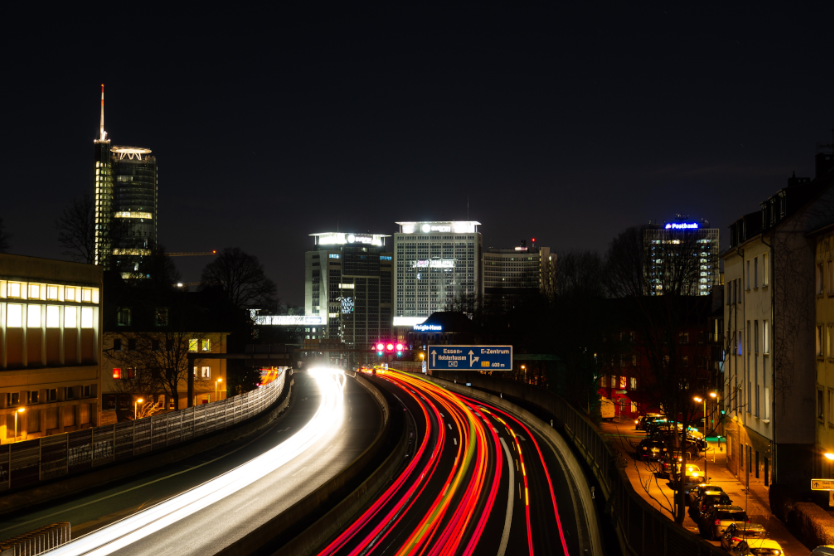
Fifteen so-called “Smart Poles” will offer light and a number of other intelligent functions including charging points for electric vehicles, smart parking management, wi-fi provision and collection of air quality data.
© Fabian Schneidereit, Unsplash
Fifteen so-called “Smart Poles” have been installed in the downtown area of Essen city as part of the initiative CONNECTED.ESSEN. They will not only light up the streets (with insect-friendly LED bulbs, each supplying 100,000 operating hours), they offer a number of other intelligent functions including charging points for electric vehicles, smart parking management, wi-fi provision and collection of air quality data.
Along with the city of Essen, the project partners are innogy, which manufactures the street lamps, and the Essener Versorgungs und Verkehrsgesellschaft mbH (EVV), the holding company which operates Essen’s service functions and is the driving force behind CONNECTED.ESSEN.
Fourteen of the poles have been installed in Huyssenallee in the vicinity of the Philharmonic Hall and Aalto Theatre. The final smart streetlamp will be positioned in front of the new Huyssen Quarter. Five of the poles provide charging points in bays that are suitable for all AC system vehicles, while an overhead sensor system has been enabled to manage 150 parking spaces on the street, letting drivers know real-time availability of bays. Charging data can be accessed via the free eCharge+ app.
Furthermore, a WLAN 4G router will offer free wi-fi access to users of the local park Glück-auf-Park. The WLAN pole is also equipped with an emergency button, which connects to innogy’s 24 hour Security Operations Centre, to promote a greater sense of citizen security.
All the Smart Poles are equipped with a digital display screen to provide information such as parking availability and real-time data on air quality. The streetlamps measure particulate matter, ozone and nitrogen dioxide pollution, which is overseen by the responsible State Office for Nature, Environment and Consumer Protection (LANUV).
The project will continue for three years, after which the data will be evaluated. The pilot could pave the way for connected street infrastructure in other European cities in future.


